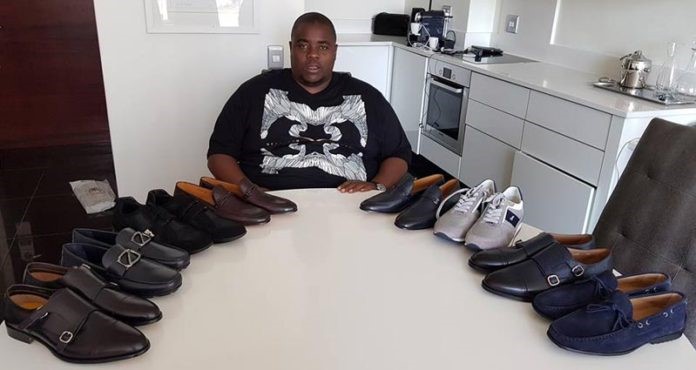- In 2012, Wicknell Chivayo and his company Intratek won a tender to construct the 100Mw Gwanda Solar Project in Zimbabwe.
- He was advanced US 5.6 million for the project’s pre-commencement works and has nothing to show for it.
- Chivayo has been charged with fraud, money laundering and contravening two sections of the Exchange Control Act.
Conspicuous wealth epitomized the larger than life Zimbabwean businessman Wicknell Chivayo, from flashy shoes to luxury cars. It was a different story after being arrested and spending 8 days in prison in August this year without shoelaces. Chivayo and his company – Intratek Zimbabwe (Private) Limited – are being charged with fraud, money laundering and contravening two sections of the Exchange Control Act.
Simply put Chivayo signed a number of power deals with power utility Zesa Holdings and its subsidiary, the Zimbabwe Power Company (ZPC) and did not deliver on the contracts. Among the deals, Chivayo was awarded a $200 million tender for the 100Mw Gwanda Solar Project. He was advanced US 5.6 million for the project’s pre-commencement works and to date has nothing to show for it apart a lavish lifestyle, international travel, designer brand clothes and luxury houses.
The story goes like this; In 2012, ZPC resolved to increase its national grid. A feasibility study was carried out and a tender was floated in August 2013 for the installation of a 100 Megawatt solar power plant in Gwanda. The tender was awarded to a Chinese company China Jiangxi at a cost of $183 million.
Chivayo participated in the tender with a bid of US 248 million which was ranked third lowest but it was, however, alleged his accomplice, former Energy minister Samuel Undenge, interfered with the process and directed ZPC to award the tender to Chivayo and his company. He reportedly won the tender at US 172.848.597
The court was told that on October 23, 2015, ZPC acted on the misrepresentation and signed a contract with Chivayo for implementation of the project. In court papers, ZPC released US 5.607.814.24 into Intratek bank account for the project to take off but allegedly converted or transferred the money into various individual and company accounts.
Chivayo was also authorised by the Reserve Bank of Zimbabwe to load $849 479 into his visa cards for the importation of earth-moving equipment in the US for construction works at Gwanda Solar Project. However, Chivayo did not import anything. As a result, ZPC suffered prejudice of US5 607 814, 24 and nothing was recovered.
The controversial businessman often posts pictures of himself with senior ruling Zanu-PF officials such as President-elect Emmerson Mnangagwa and Vice President Kembo Mohadi among others. In a recent tweet, Chivayo communicates that he has turned to God “Trust God even when you don’t understand your circumstances. The purpose of our struggles is to refine us,” he said.
The court case has recently taken a sudden twist with the prosecution seeking to amend the charges against him and his company. This comes in the wake of a High Court ruling recently stating that the charges against Chivayo were weak to sustain a conviction.
Regional magistrate Mrs Estere Chivasa remanded the matter to October 23.
Access to Electricity in Zimbabwe was reported at 38.5 % in 2016. The country has recently experienced a change in leadership with Emmerson Mnangagwa elected as president after a disputed election.
According to the World Bank Overview, Zimbabwe’s expansionary fiscal policy that started in 2016 has resulted in unsustainable fiscal deficits that widened from 8.5% in 2016 to 11.1% in 2017. The expansionary fiscal policy spilt over into the financial sector and resulted in cash shortages that weigh negatively on economic growth.
The poverty rate in Zimbabwe is now more than 72%, leaving a fifth of the population in extreme poverty. Health, education, and other basic services—once regional models—have largely collapsed.
The World Bank’s lending program in Zimbabwe is inactive due to arrears and the role is now limited to technical assistance and analytical work through Trust Funds.
Author: Bryan Groenendaal
















1 Comment
May God continue blessing him